Welcome!
I’m Lindsay.
Post-op Emotional Recovery
Mood & Emotion Regulation (i.e. Anxiety, Anger, Numbness)
Grief & Loss (Death, Break-ups, Life Transitions)
Family Dynamics (conflict, acceptance)
Certified in Guided Drawing® (helps with trauma processing, mood regulation, identity building, burnout)
Professional Philosophy
What have you lost? That is a question I have found to be most impactful when helping others heal. Often, we do not allow ourselves to say “I am hurt”. We say things like “I feel stuck” or “I’m feeling really bad”. Part of that feeling is rooted in the inability to recognize where we are at. Most of us also have a difficult time explaining what we are thinking or feeling with words. I guide you to finding your voice.
The reality is that talking is not always the best way for us to communicate; Sometimes our mind, body, or soul knows the truth and is telling us without words. I guide my clients to approach their struggles with curiosity and attention instead of judgement and avoidance. I also encourage my clients to utilize a creative process (whether they are experienced artists or only draw stick figures) so that we may observe parts of themselves they may not be aware of yet. Using methods such as writing, reading, drawing, sculpting, collaging, film analysis, etc. to assist our work together can result in a deeper understanding of yourself. I have found that in regardless of age or experience, humans often hide their suffering (or ignore it). Only when we acknowledge that we are hurt can we then begin to heal.
“Be curious.
Not judgmental.”
― Ted Lasso (from Walt Whitman, allegedly)
Personal Background
Often, we cannot see the forest through the trees. Like all humans, I have experienced change, conflict, and loss. These things made me feel a lot of pain (emotionally, physically, or sometimes both), but I didn’t always see how it was impacting myself and those I cared about.
I have been an athlete my entire life, but I always loved reading and creating as well. For some reason, I believed I couldn’t do both. However, when sports and physical fitness became less accessible to me, I poured myself into several passions (visual art, writing, exploring nature, and altruism) to help me get through difficult times. It took some time to finally realize that the things I was writing, creating, reading, and seeing during these painful times were trying to show me the path to healing! With the help of art, books, movement, nature, and wonderful people, I was able to understand how some unresolved emotions manifested in ways that deeply impacted my body, mind, and relationships. I knew I wanted to expand this realization into a bigger purpose to help others.
Guided Drawing®
[From the Institute of Sensorimotor Art Therapy]
“Guided Drawing® is a bilateral drawing approach that supports body mapping in a trauma-informed way… Adults draw with closed eyes and both hands on large sheets of paper. Guided Drawing does not use imagery, but the direct expression of one's felt sense. In rhythmic repetition, individuals can release tension and pain, assert their boundaries or soothe and nurture their soul. What clients experience in its immediacy is that they can do something to help themselves, and that their actions have a tangible impact on their felt sense, which can be deeply empowering.This embodied art therapy approach is informed by neurobiological insights into human stress responses.”
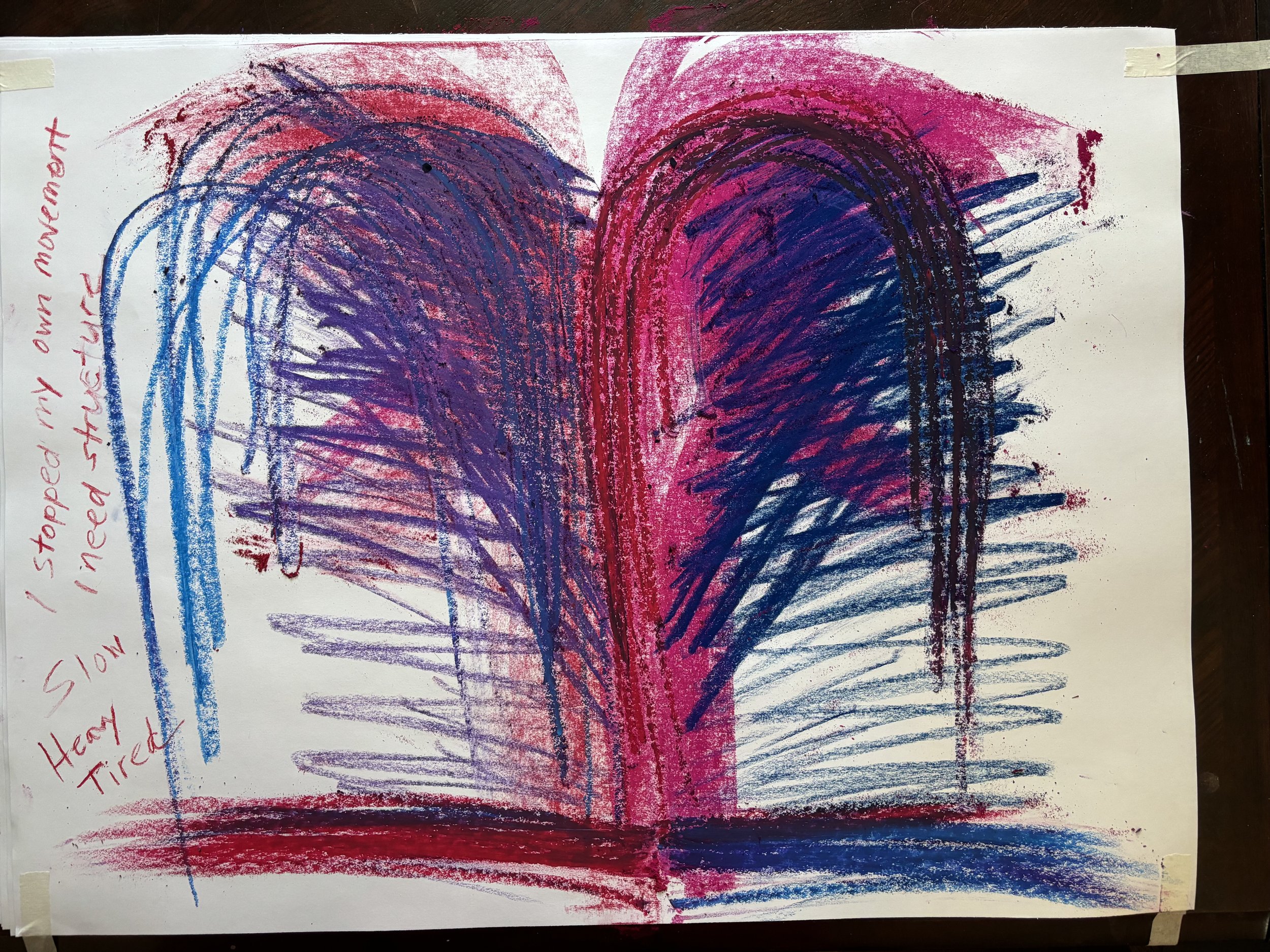

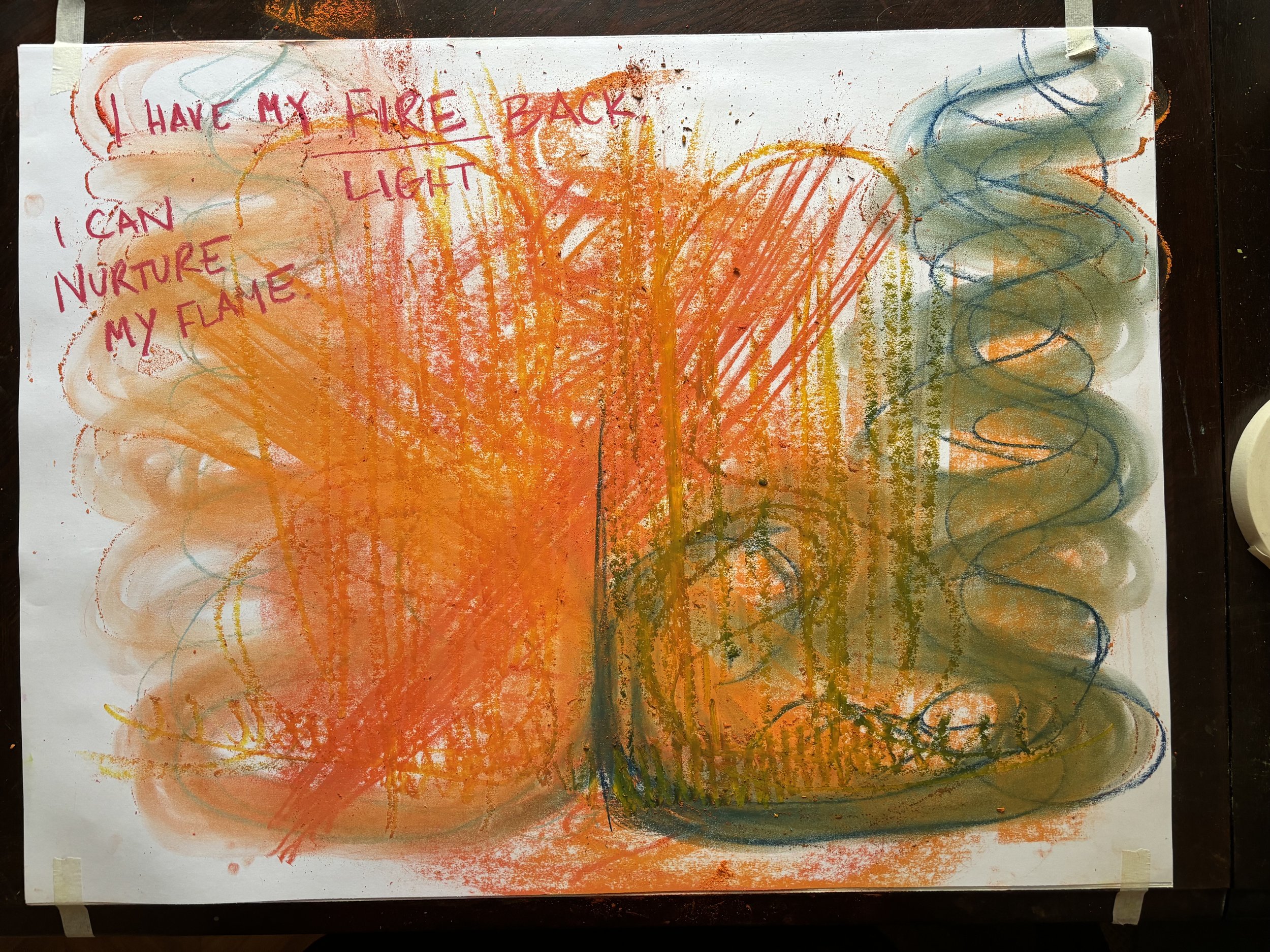

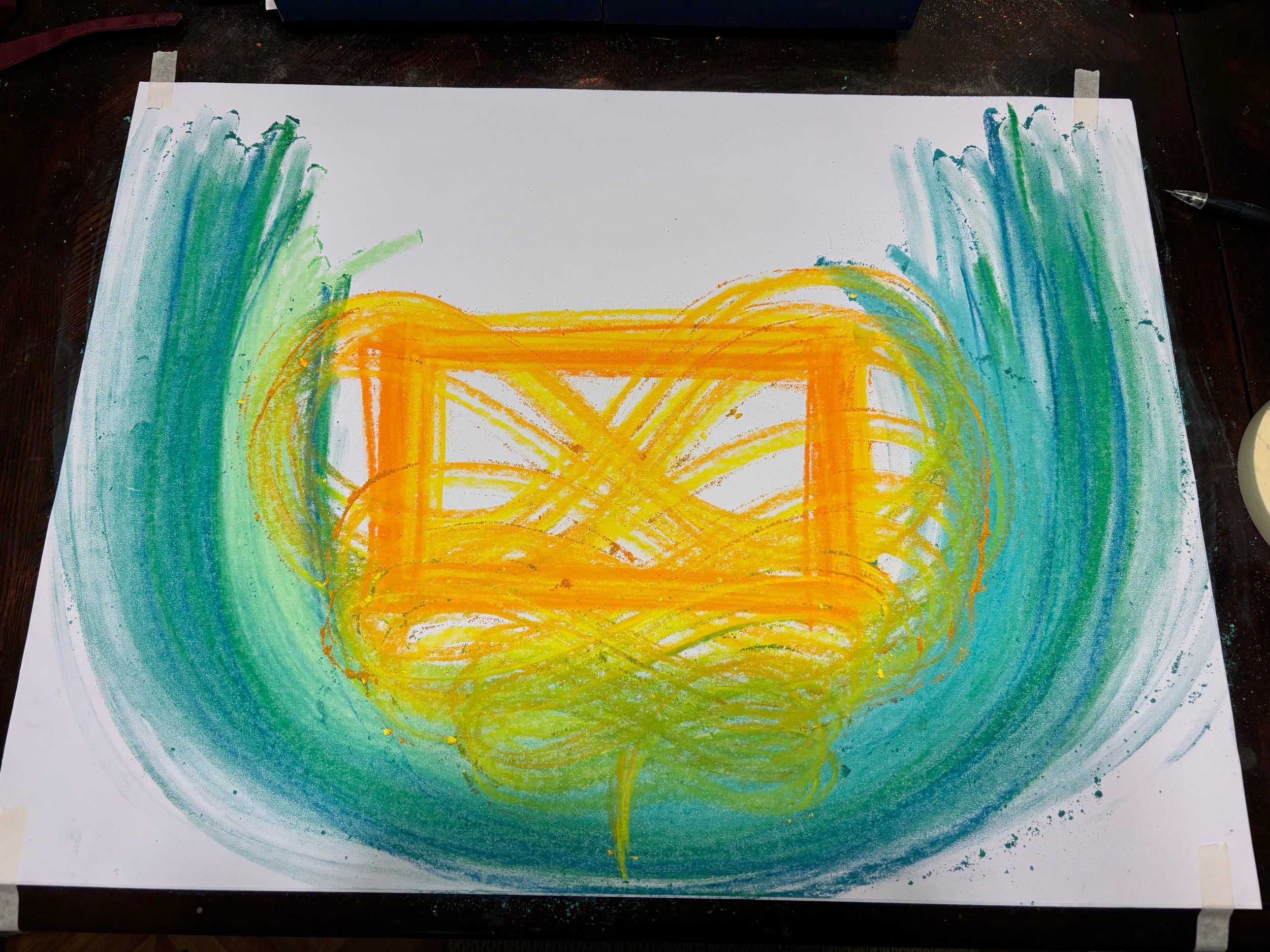
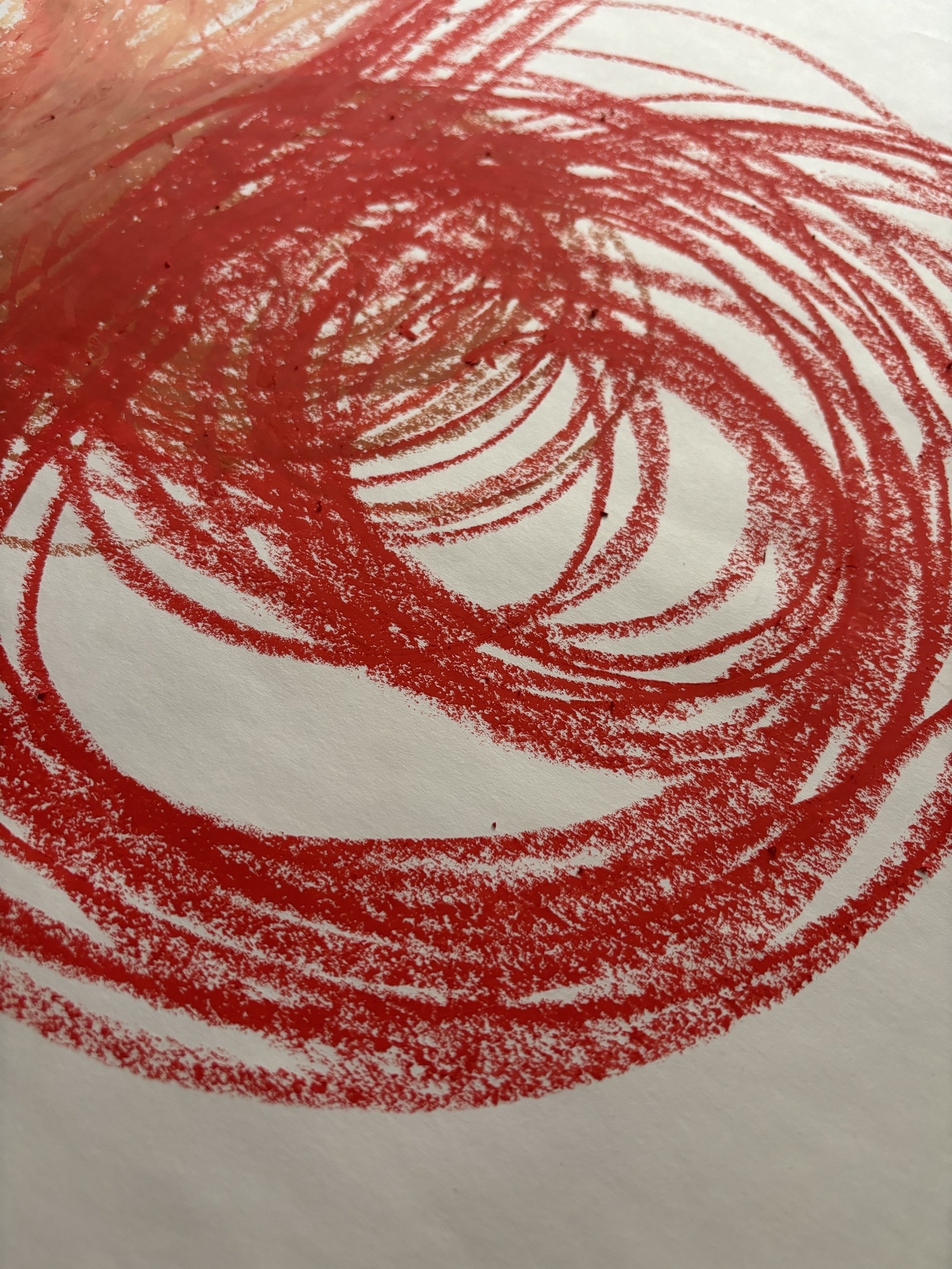
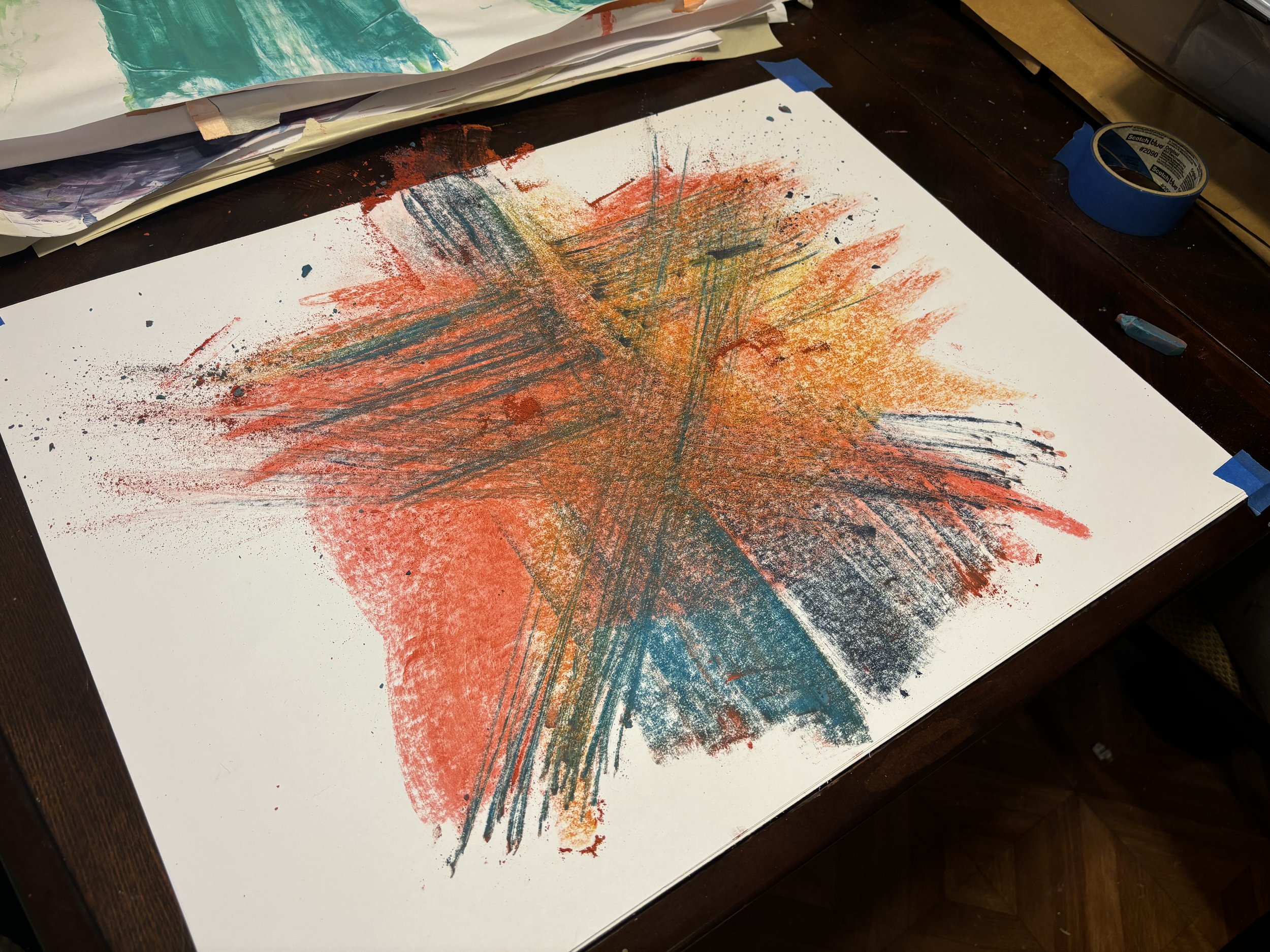
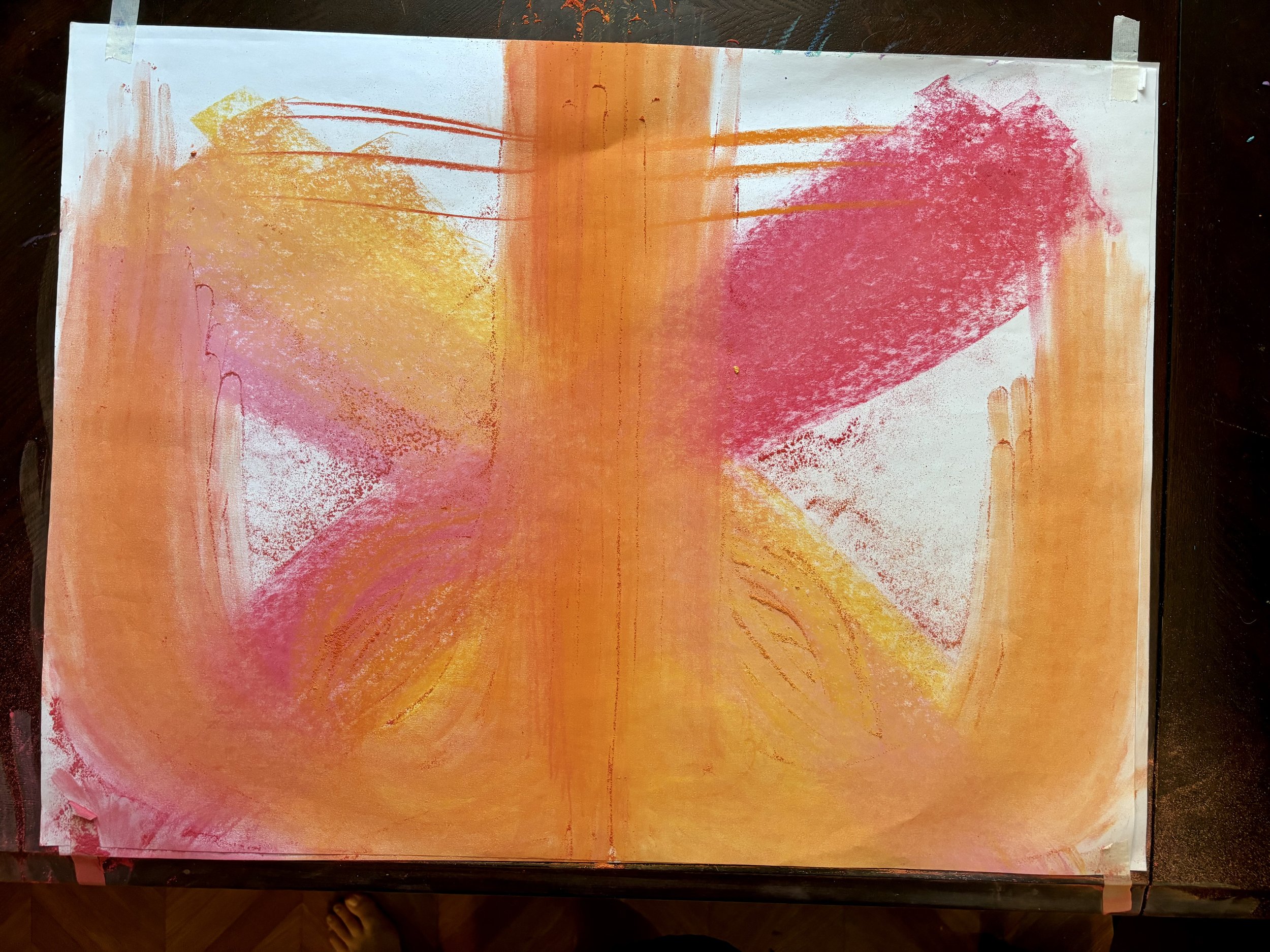
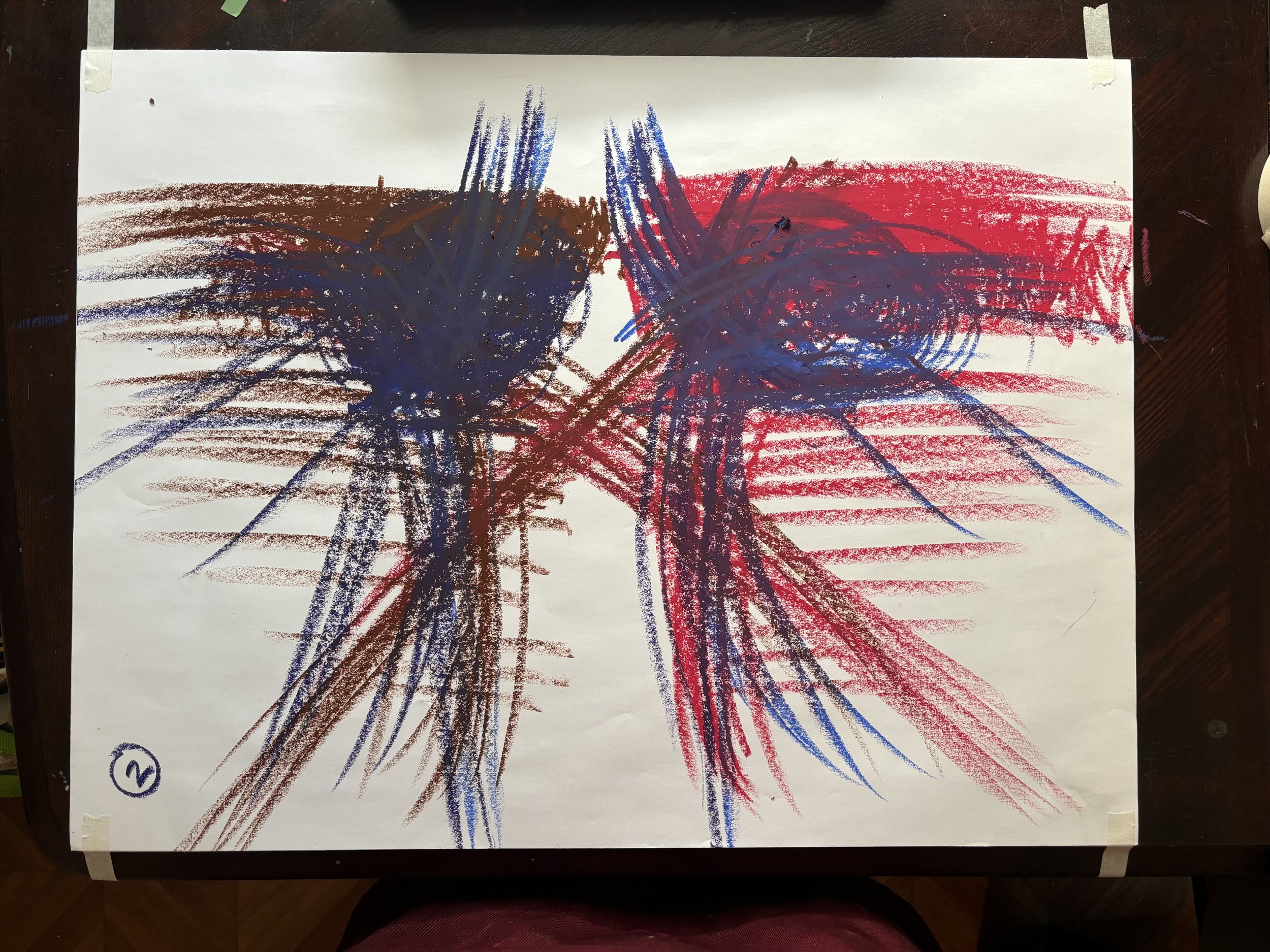
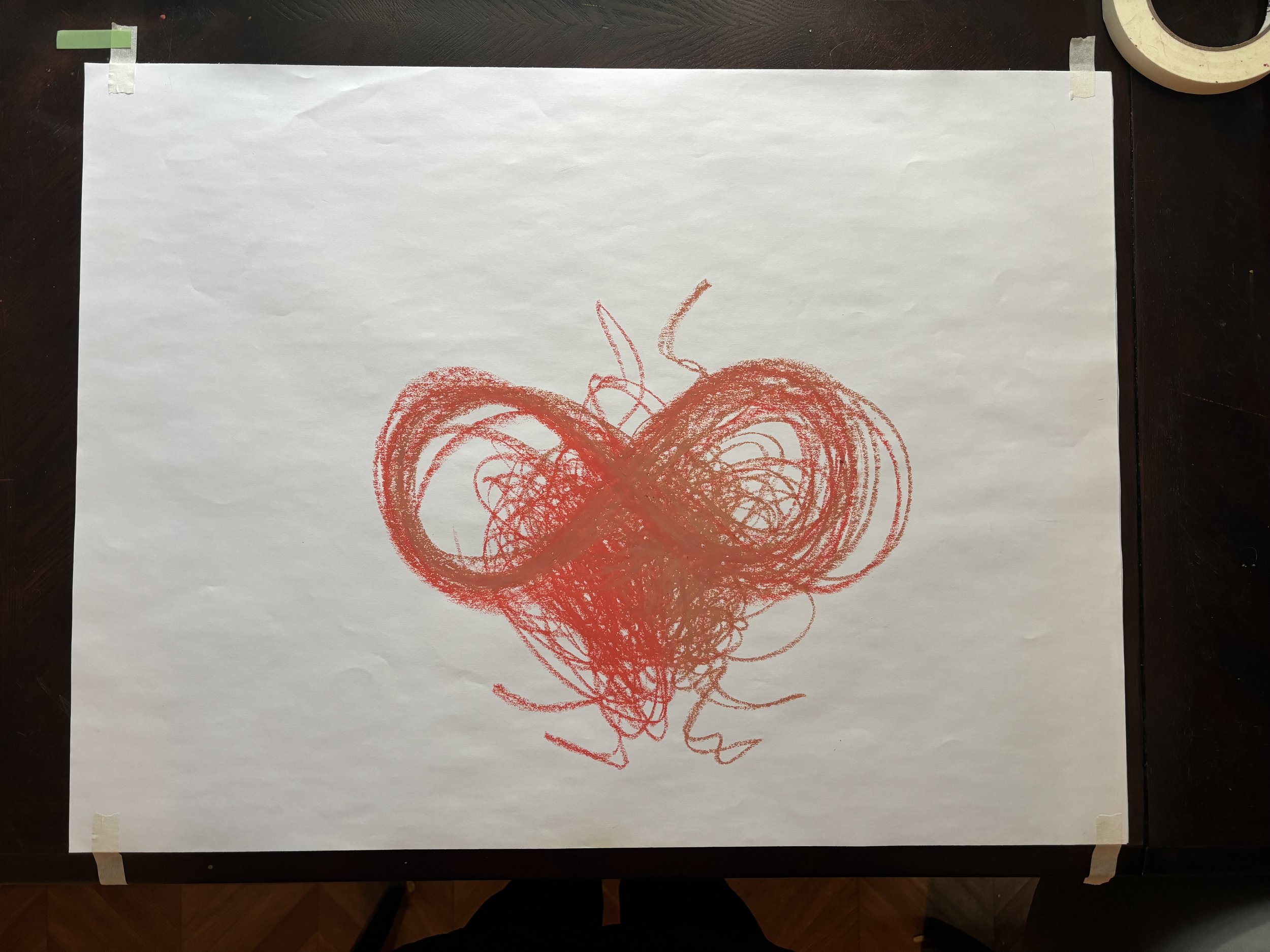
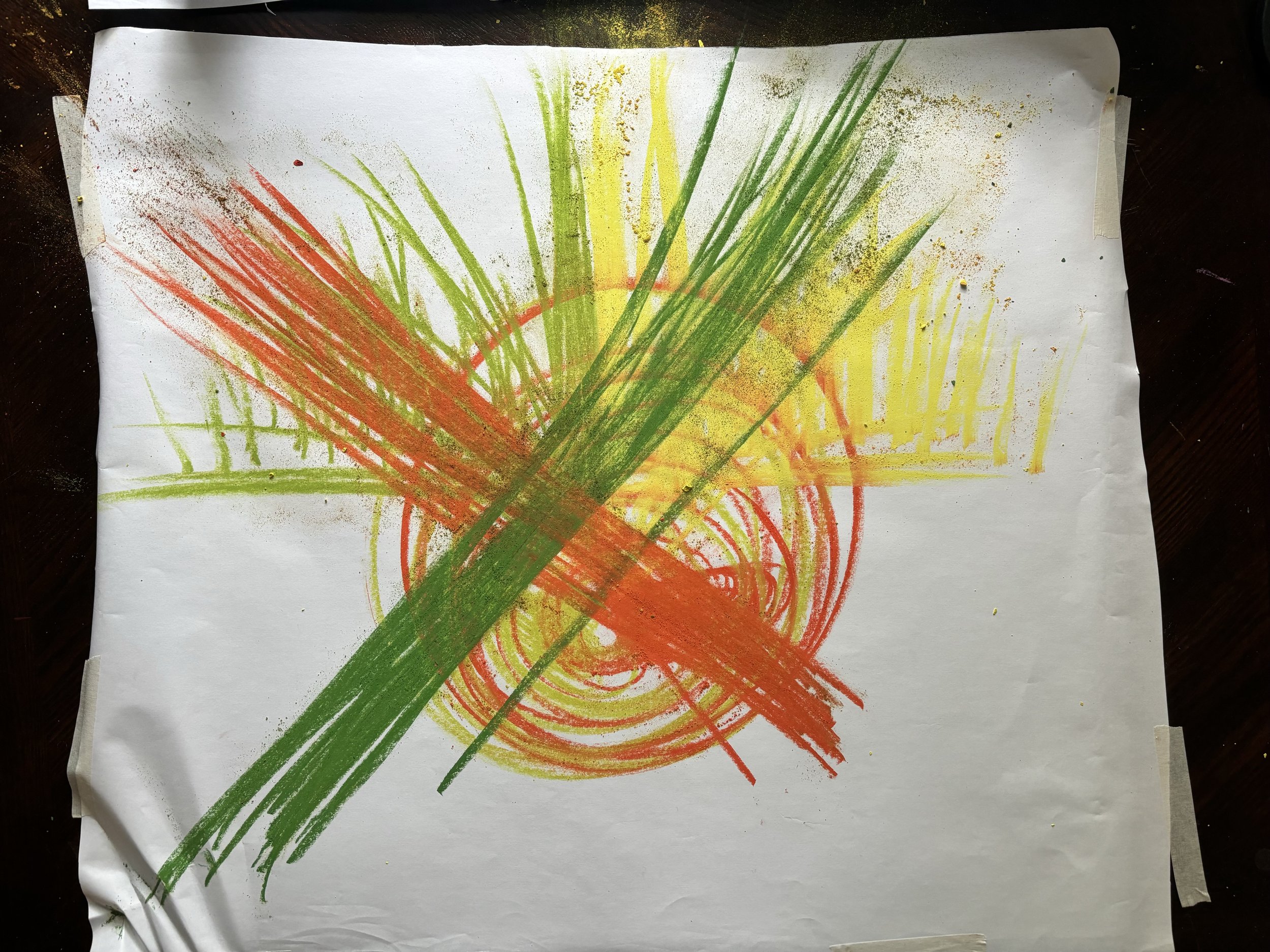
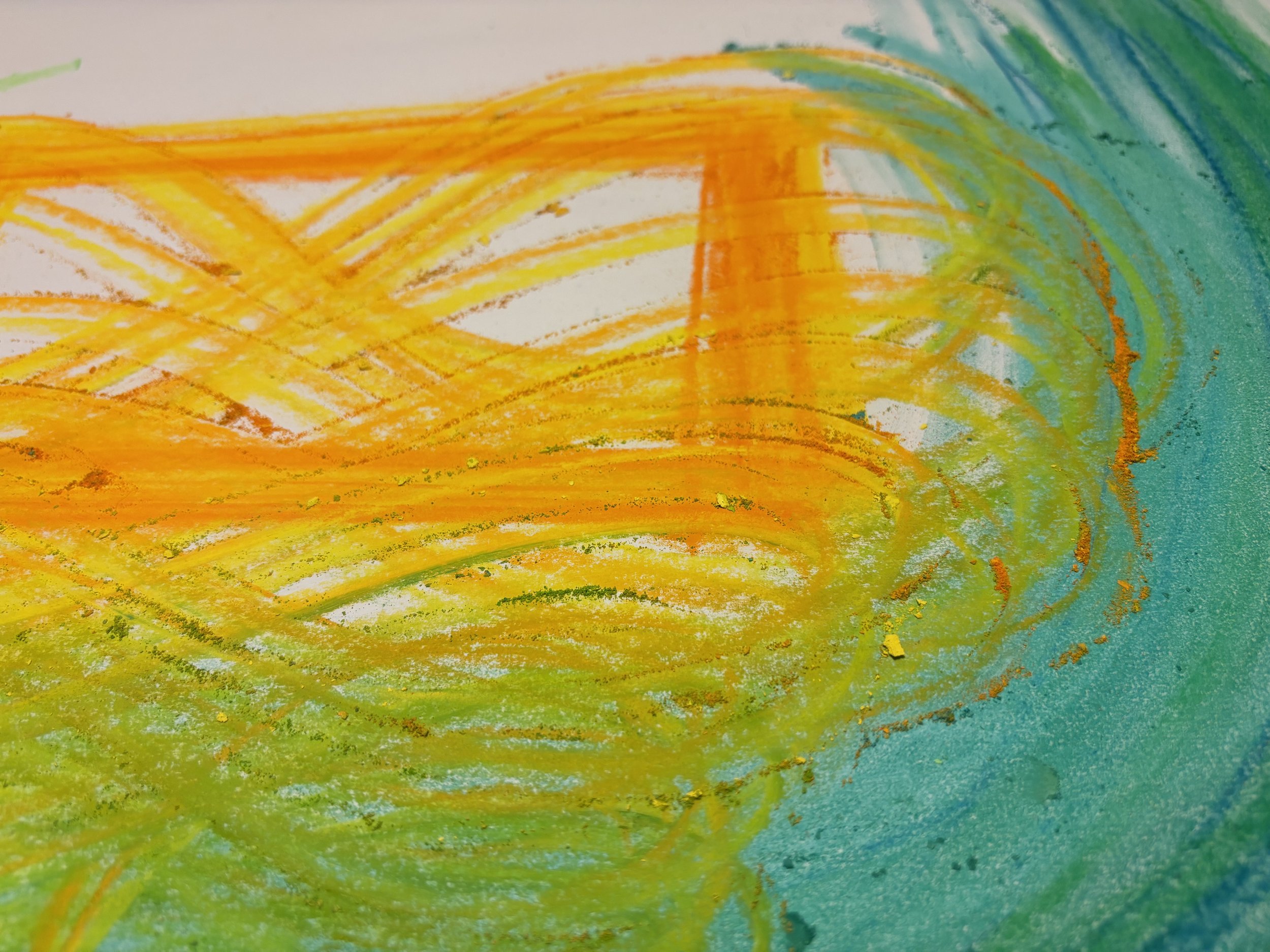
Areas of Focus
All of us here at START address the mental health areas of stress, trauma, and anxiety in our practice. We apply these three topics to unique, specific challenges that our clients are going through. I also offer specialized treatment in the following areas:
Regulating Mood & Reactivity
in Young Adulthood
Are you in your 20s or 30s? Are you currently a college/university/trade school student? Has going into higher/specialized education kicked up difficult things for you? Are you a recent graduate that is anxious and uncertain about your future? Are you trying to keep your head above water in regards to financial stress, balancing multiple jobs, and caring for yourself? Are you uncertain of your major, interests, values, or role in society? Are you trying to explore if you’d like to be n a serious relationship, get married, or be a parent? All of these challenges are topics we can explore together.
Athletic and/or Post-Operative Emotional Recovery (Adults)
Has your experience of a team, sport, or surgical procedure resulted in a mental health decline? Have big life events begun affecting your athletic performance? Have you sustained an injury that required surgery? All of these questions are relevant to my work with clients. I create the space for us to recognize the impact that physical activities, competition and performance pressure have on ourselves as a whole person. We also processed unresolved emotions and trauma that may occur due to injury and surgery.
Unrecognized Grief (Adults)
What have you lost? When we hear the word “grief”, we typically think of the death of a family member, friend, etc. Loss comes in many forms and is often ignored. How has a life change affected you? What feels like “someone died” but is not the case? Have you lost a job? Are you missing a friend? Have you sustained an injury that impacted your life? Have you gone through a divorce or a break-up? Have you had to set boundaries with a specific person in your life? Did you have a strong, personal attachment to a place that you can no longer go to? These are just a few examples of how we suffer loss in our lives. They deserve to be acknowledged and processed.



